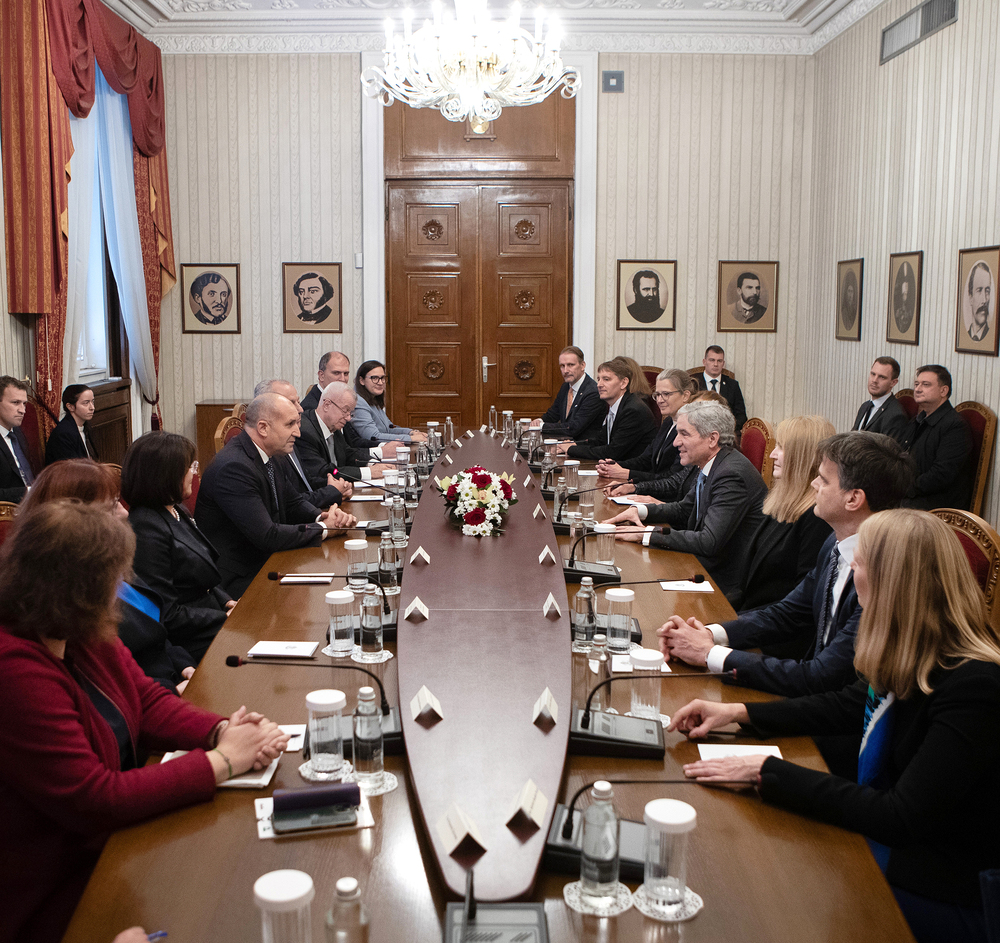site.btaHead of State Meets with President of Germany’s Federal Constitutional Court


President Rumen Radev met with Germany’s Federal Constitutional Court (FCC) President Stephan Harbarth in Sofia on Tuesday, the head of State’s press secretariat reported. The discussion focused on principles of the rule of law, their application, and the impact of political processes.
The official delegation of the German Court, visiting Bulgaria at the invitation of the Bulgaria's Constitutional Court (CC), included FCC Vice-President Ann-Katrin Kaufhold and judges Rhona Fetzer, Thomas Offenloch, Martin Eifert, and Miriam Messling. The meeting was attended by CC Chair Pavlina Panova, and Irene Maria Plank, Ambassador of Germany to Bulgaria.
The delegation examined the trend of restricting presidential powers in Bulgaria, initiated by the 2023 constitutional amendments and subsequent legislative changes. This was discussed in the context of shifts in the constitutionally established balance of powers and the growing concentration of authority in Parliament.
The meeting also addressed citizens’ ability to participate in decisions affecting the country’s future, particularly regarding the National Assembly former chair Nataliya Kiselova’s refusal to put the President’s proposal for a referendum on euro introduction to a vote. At the end of May, President Radev petitioned the CC to nullify Kiselova's refusal to include his proposal for the conduct of a national referendum on Parliament's agenda. On November 18, the CC ruled that the National Assembly Chair does not have the competence to determine the admissibility of a national referendum and to reject a proposal made by an entity empowered by the law.
Radev noted that disrupting the constitutional balance between institutions creates the risk of unpredictable consequences, especially given the critically low public trust in key institutions. "The rule of law and the balance between institutions are enshrined in the Constitution, and any violation inevitably undermines the foundations of democracy," Radev said.
Demographic challenges, affecting Bulgaria as well as Europe, were highlighted as a major concern. Radev identified ensuring the rule of law, leading to effective anti-corruption measures, improving healthcare, education, and the public environment as essential to halting the emigration of young people and enabling them to fully develop their potential in Bulgaria.
The ability of state institutions to make competent decisions within their legal mandates was also discussed. The President stressed that in Bulgaria and other European countries, legislators and executive authorities often make decisions in defence and security without the necessary knowledge, experience, or expertise.
The talks also covered prospects for deepening bilateral economic cooperation between Bulgaria and Germany. Radev highlighted the importance of the German business model of cooperation between companies, science, society, and institutions, describing it as the most valuable investment of German business in Bulgaria.
/MR/
news.modal.header
news.modal.text